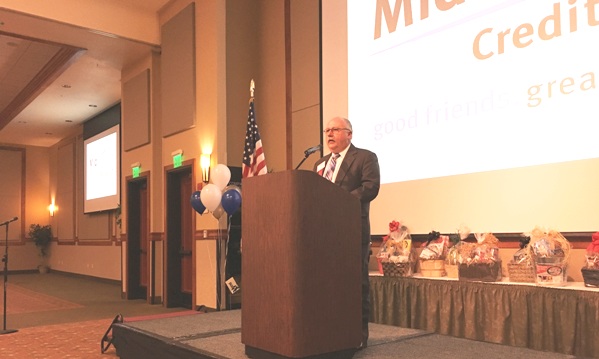Our continued focus on kids and money during Credit Union Youth Month!
To allowance or not to allowance…. that is the question. Whoever you ask, you’ll get a variety of viewpoints on whether giving our children an allowance helps them become better money-managers. Some parents give their children a fixed amount each week, some give allowances for certain chores, and others don’t believe in giving any sort of allowance at all.
For instance, personal finance expert Dave Ramsey doesn’t recommend giving kids fixed allowances, but instead believes in paying “commission.” By paying at the completion of each task, children can control how much they earn, and see the immediate payoff of a job well done.
Allowance as a Teaching Tool
One study showed that while 90% of parents gave children an allowance based on chores, only 80% talked with their children about money management. As a parent, teaching them to be responsible with money should be just as important as teaching them responsibility in other areas of their lives.
An allowance gives you the opportunity to give your child some experience with money. It allows him or her to see how choices have consequences and plan for the future. And perhaps most importantly, it gives kids a chance to make mistakes while the stakes are relatively low. When their own money is at stake, they’ll quickly learn how to research the things they’d like to buy, and become more informed consumers. These lessons are far less painful when your child is buying a pair of sneakers or the latest toy craze, instead of their first car or home.
Learn the Basics, and Pass Them Along
Many of us are less vocal about financial conversations with our children because we’re not confident about money ourselves. If you need a little help, you can learn some of the basic financial concepts to teach your kids in this informative series of podcasts from Joel Chrisler, host of the Internet radio show Real Life 101.
Podcast: What Parents Should Teach Their Kids by Kindergarten
Podcast: What Parents Should Teach Their Kids by Middle School
Podcast: What Parents Should Teach Their Kids by High School
Here are some other ideas for raising money-savvy kids:
- Teach them to budget in age-appropriate ways. Use a three-jar system to help your child make saving, spending, and sharing a regular habit. If your child is ready for his or her own savings account, you’ll receive a Moonjar Moneybox when you open a Mid Oregon Children’s Account.
- Consider matching their savings. Some kids spend every cent they have. If you struggle to get your child to save, consider matching-dollar-for-dollar everything they deposit in their savings account. Then celebrate together as their savings grows.
- Involve your kids in family budgeting. Set a savings goal together, such as a family vacation or a new play structure for the back yard. Come up with a fun way of tracking your savings (such as a poster, whiteboard, or even a model made of Legos), and discuss ideas for how you can achieve your goal faster–whether by reducing your expenses or increasing your earnings. Children can help by collecting cans, house- or pet-sitting, or helping neighbors. Everyone can help by finding ways to reduce grocery and utility bills, clipping coupons, and setting aside a little extra from their birthday money or tax refunds.





